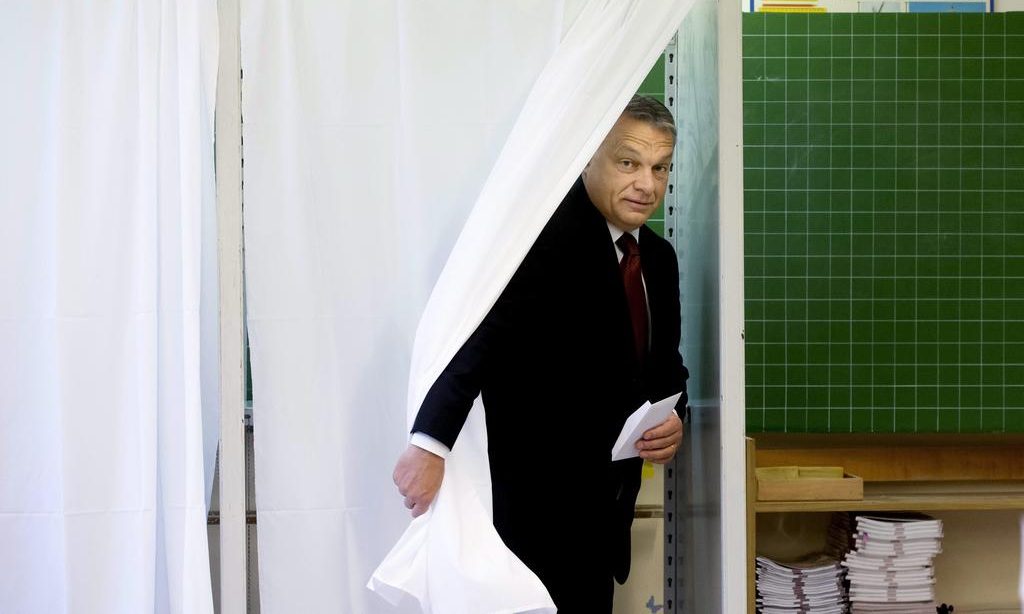It is not intuitive that a politician would ever be willing to voluntarily deprive herself of the power to make a decision. The goals of an election, after all, are both to acquire an office and to acquire the legitimacy liberal democracies require of their decision-makers. But since mid-summer, European national leaders have consistently denied themselves the power to decide important issues of public concern, and have deferred that decision making power to voters in referenda.
The Brexit vote in June, in which Britons voted to leave the European Union, was the most striking example of this trend. And it has inspired copycats. On October 2, Hungarian Prime Minister Viktor Orban held a referendum that asked voters whether they agree with the European Union’s plan to resettle migrants in member states, including Hungary. While over 98% of voters voted “no,” turnout fell below the 50% required to render the vote binding.
Undeterred, Orban’s government claimed this plurality opinion was an unambiguous mandate. “Today is a sweeping victory for all those who reject the EU’s mandatory, unlimited quotas,” the Party Deputy Chairman said. The use of the words “mandatory” and “unlimited” mirrors the verbiage of the referendum question itself. “Mandatory,” “obligatory,” and “without the approval of the National Assembly” were the descriptors used to explain the EU’s resettlement scheme in the question posed to voters, reflecting the perceived lack of choice Hungarians had in the policy. In that sense, the act of holding a referendum was the very antithesis of the mandatory-EU-migrant-regime-bogeyman Orban had constructed.
If Orban had intended to settle the issue of migrant resettlement, he chose the wrong means. Referenda are inherently contested–not just in their results, but in their legitimacy. Unlike in legislative proceedings, the language that voters see is not determined by the voters themselves. In the Hungarian Parliament, MPs both decide upon the wording of bills and vote on them. In referenda, voters (besides those who petition for the vote to be held in the first place) are absent from the contestation over language. As a result, they are confronted at the ballot booth with language shaped by partisans who seek to skew the vote. Words like “mandatory” appear more times in one sentence than is necessary to ensure that not one voter is under the false impression that she is debating an issue of voluntarism.
No politician at all aware of the ambiguous character of referenda will propose one for the singular purpose of achieving a clear result. No, a referendum is called because it is an outsourcing of the creative power of the state. When a government is bereft of creativity, only then is it willing to voluntarily deprive itself of the power to make a decision. How can Hungary mitigate the threat of terrorism, according to Orban? Preventing 1,300 migrants from entering a country of 10 million. Orban may call on the EU to regard the referendum as the will of his voters, as leverage to reject the resettlement quotas. But by not meeting his government’s own threshold, the vote has absolutely no authoritative value. Once it becomes clear that this referendum won’t bind the EU, the 98% of voters who sided with Orban may be rather perplexed to discover that their votes did not, in fact, matter.
In France, the increasingly conservative Republicans have also concluded that a referendum is the optimal forum to decide which simple solution should be employed to solve the country’s complex problems. Nicolas Sarkozy, the former president who now appears poised to mount a comeback run, has proposed two referenda in the event that he is elected. One would pose to voters whether to end the practice of family unification in immigration policy. The other would propose jailing individuals whose names appear on the French “S file,” a terrorist watch list. “Given how bad the situation is,” Sarkozy said, “giving the people a voice is making a choice of democracy.”
If Orban’s referendum is any indication, however, Sarkozy’s referenda would not even make the French people feel that they have “a voice.” Instead, it would likely culminate in an ambiguous result, after a campaign of low turnout and low information. The government would lack a mandate to take the strong steps it promised voters, thereby further alienating those who discover that the government they hoped would take a muscular approach to counterterrorism and migrant control is unable to do so.
If the problem in the West today is public alienation from elites, overpromising and under-delivering is no panacea. If leaders do opt to outsource their decision-making power, they should at least not outsource their duty to devise creative solutions unmarred by bigotry.

